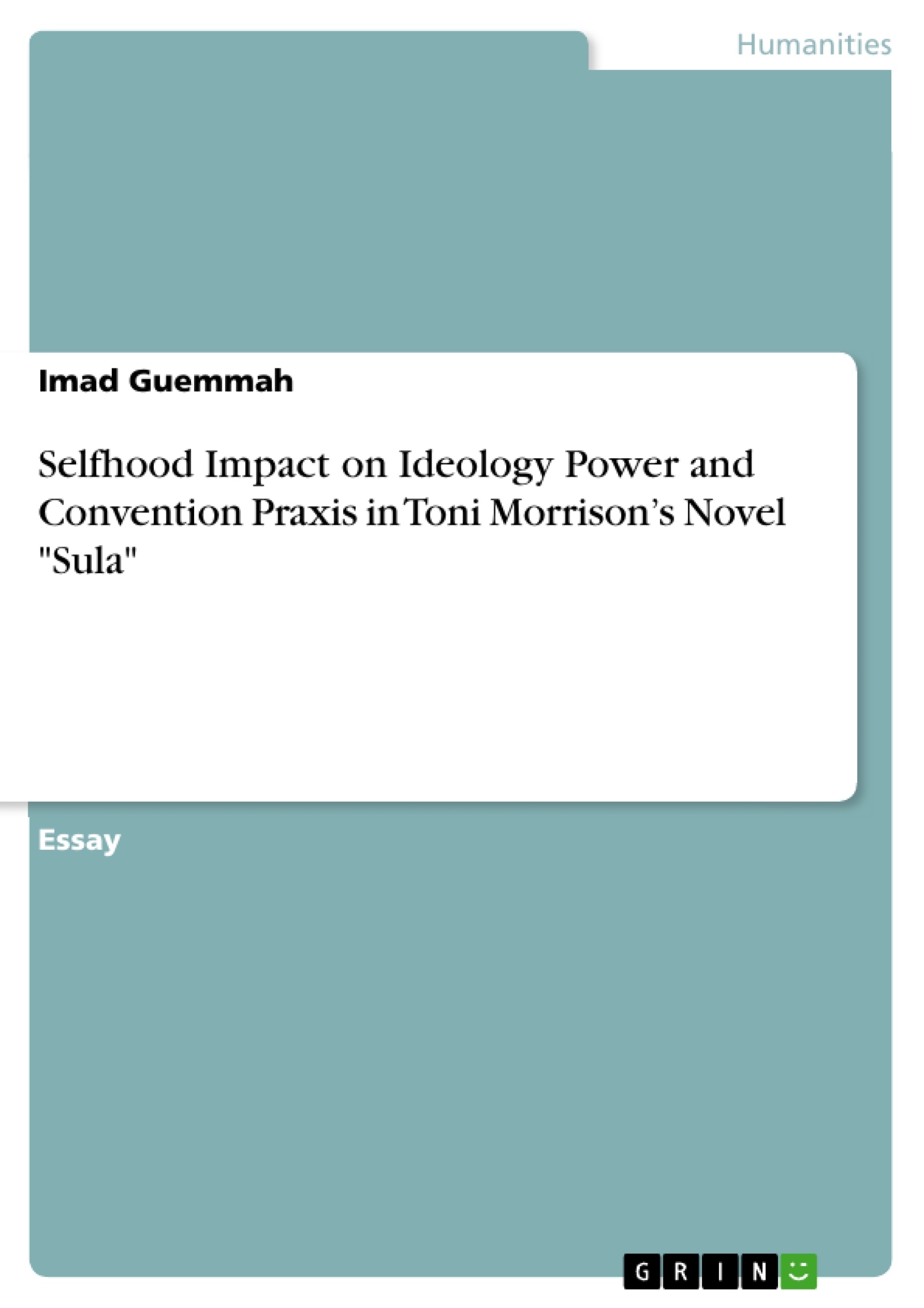The paper aims at discussing the themes of ideological and conventional conflicts in Sula, an Oscar-winning novel written by Toni Morrison. It begins with an overview of the major points that mark the novel; and then shifts to the violently serious disagreements between Sula, the protagonist, and her community. It is common sense to assume a certain Manichean worldview, for societies are bound to declare untraditional behavior as persona non grata. Logically, society denizens conceal behind religion, convention and mythical fabrications in order to alienate the target person. I would henceforth raise this argument with Sula as a case study. When such clear-cut demarcations are drawn, ontological questions germane to identity prove primordial and significant. I would eventually illuminate the price Sula paid to protect her self-concept; hence, her raison d’être.
Inhaltsverzeichnis (Table of Contents)
- Making a Difference: Selfhood Impact on Ideology Power and Convention Praxis in Toni Morrison's Novel, Sula
- Ignorance, Ritual Exercising and Power of Ideology in Toni Morrison's Sula
- Sula: A Conundrum of Identity Loss
- Selfhood and Loneliness in Toni Morrison's Sula
- Freedom Absence in Toni Morrison's Sula
Zielsetzung und Themenschwerpunkte (Objectives and Key Themes)
This paper explores the interplay of selfhood, ideology, and power dynamics within the context of Toni Morrison's novel, Sula. The analysis delves into the complexities of individual identity formation and its relationship to societal norms and expectations, particularly within the marginalized black community of the Bottom.
- The impact of societal norms and expectations on individual identity
- The role of power dynamics and ideology in shaping societal structures
- The complexities of self-definition and the challenges of individuality within a community
- The consequences of defying societal conventions and embracing self-expression
- The exploration of themes of freedom, choice, and the limitations imposed by societal structures
Zusammenfassung der Kapitel (Chapter Summaries)
The paper begins by introducing the contrasting backgrounds and relationships of Sula and Nel, highlighting the influence of societal norms on their individual journeys. The narrative delves into the impact of Sula's unconventional choices and her ostracization by the community. The author examines the power of ideology and its role in shaping the community's perception of Sula as an "other." The paper further analyzes the themes of selfhood and loneliness, exploring the challenges of maintaining individuality within a restrictive societal framework. The author concludes by discussing the limitations of freedom and the lack of agency experienced by the characters, particularly women, within the context of the Bottom community.
Schlüsselwörter (Keywords)
This study focuses on the core themes of selfhood, ideology, power, and convention praxis within Toni Morrison's Sula. It explores the complexities of individual identity formation, societal norms, and the challenges of navigating social structures. Key concepts include the "other," freedom, choice, and the limitations imposed by societal expectations. The analysis draws upon perspectives from various scholars, including Simone de Beauvoir, Cynthia A. Davis, and Arthur Gordon, to shed light on the interplay of individual agency and societal constraints.
- Arbeit zitieren
- Imad Guemmah (Autor:in), 2010, Selfhood Impact on Ideology Power and Convention Praxis in Toni Morrison’s Novel "Sula", München, GRIN Verlag, https://www.hausarbeiten.de/document/275559


